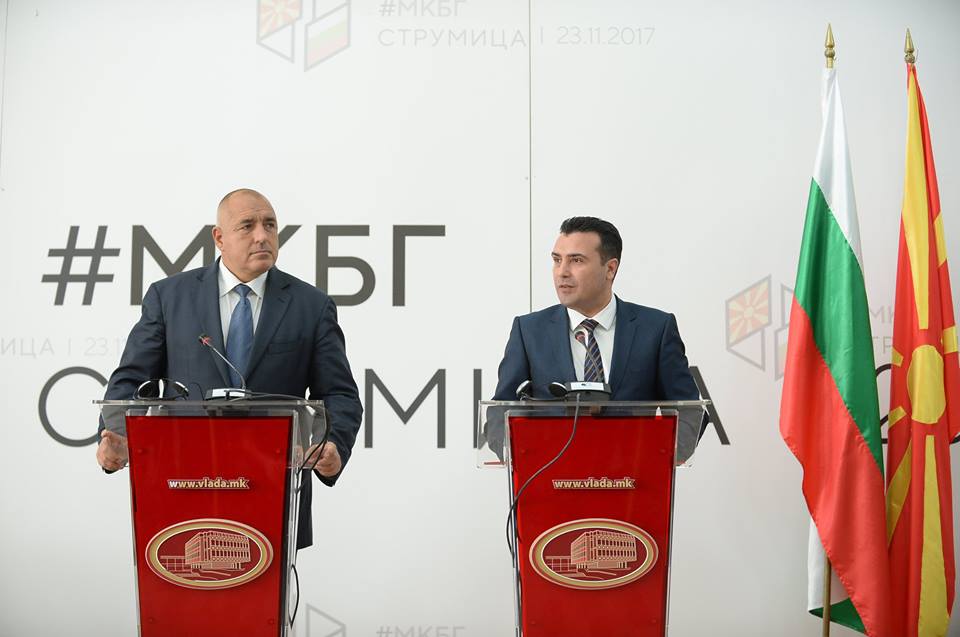Bulgaria… will work towards finding common solutions in response to the needs of Europe and the European citizens for more security, stability and solidarity, aiming to establish a Strong, Digital and United Europe through consensus, competitiveness and cohesion.– Programme of the Republic of Bulgaria for the Presidency of The Council of the European Union
Priorities of the Bulgarian Presidency
The Republic of Bulgaria, forming part of the Estonia-Bulgaria-Austria trio, has assumed its Presidency of the Council of the European Union for the period 1st January – 30th June 2018, under the motto “United We Stand Strong”. The programme for the Presidency has four priority areas: The Future of Europe and the Young People – Economic Growth and Social Cohesion; European Perspective and Connectivity of the Western Balkans; Security and Stability in a Strong and United Europe; and Digital Economy and Skills needed for the Future.[1]
Through this programme the Bulgarian Presidency intends to promote security, stability and solidarity in Europe. Security is considered particularly relevant in light of the migration crisis and the acts of terrorism over recent years, while stability refers to ensuring the prosperity and wellbeing of citizens, and solidary is deemed central to overcoming joint challenges with joint action.[2] One of the main challenges will be contextualising PESCO, the defence co-operation mechanism, thereby contributing towards European defence and security approach. The Bulgarian Presidency intends to pursue these themes by seeking consensus on several key issues and by promoting competitiveness and cohesion.[3]
Consensus will be sought on the topics of: security and migration, the future of the Western Balkans in the EU, a sustainable integrated approach for the Danube and the Black Sea Regions and an efficient, rapid and fair justice process.[4] In the key area of security and migration, the presidency will focus on sustainable and fair solutions regarding asylum policy and return and readmission procedures. During the presidency Member States are expected to address the source of migration, strengthening border control management and improving the exchange of information between various relevant bodies.[5] Regarding the future of the Western Balkans, EU Enlargement Policy has been put firmly on the agenda.
Competitiveness is considered by the Bulgarian Presidency as crucial for the strength of the Union, especially in light of the persisting high levels of debt and limited salary growth.[6] It will therefore be promoted through: the pursuit of a Competitive Single Market (with a focus on the Digital Single Market); the promotion of entrepreneurship and social innovation (again with a digital focus on technology); the deepening of the Economic and Monetary Union along with risk reduction in the banking system, the completion of the Banking Union and the building of the Capital Markets Union; the pursuit of a sustainable and future-oriented environment as well as a stable European energy union; and addressing the future of work, with a focus on job opportunities, social security systems, social dumping and ‘brain drain’.[7] The Bulgarian Presidency will focus on the digital economy and on skills for the future, especially in terms of young people. Electronic communication and the provision of transboundary services (particularly to the SMEs), copy rights, e-privacy and cyber security have all been identified as ‘on the agenda’.[8] The link between education and the requirements of the future labour market is also important in this regard and the Bulgarian Presidency highlights the fostering of early childhood development, the modernization of the European educational systems and curricula and the strengthening of social inclusion through formal and informal learning as integral to this.[9]
The Bulgarian Presidency plans to address citizens’ welfare through ensuring cohesion.[10] The value of the Cohesion Policy for reducing difference and thus strengthening the Union is noted, [11] and the Bulgarian Presidency will therefore seek to optimise its potential by addressing the widely identified need to simplify the relevant legislation, rules and procedures.[12] Furthermore, there are hopes to reform the Multiannual Financial Framework post-2020 by opening the discussion on the future use of financial instruments, while prioritising investment in economic growth and jobs.[13]Moreover, during its Presidency Bulgaria intends to simplify and modernise the CAP and to explore culture as a strategic resource for a better future for the EU.[14]
Relevance of the Bulgarian Presidency to the Western Balkans
The positive statements made by High Representative Mogherini and Commissioner Hahn demonstrate the currently favourable outlook on the side of the EU regarding the integration of the Western Balkan countries. During her visit to the Republic of Macedonia, Mogherini stated: ‘The European Union is committed to the EU integration of this country and of the entire region. Our door is always open and we want this country to come in and to become a member of the European Union… On our side we are ready to move forward.”[15] Meanwhile Commissioner Hahn has highlighted that: “2018 will be a crucial year and an opportunity to promote the accession of the Western Balkans.”[16] Such positive statements indicate that that there is political space regarding the question of enlargement.
In light of this, the Bulgarian Presidency represents a unique opportunity for this momentum to be seized and catalysed. Bulgarian support for the integration of the Western Balkans is well documented: Ekaterina Zaharieva, the Bulgarian Foreign Minister has confirmed that: ‘Bulgaria actively and consistently supports the Euro-Atlantic integration of our neighbours from the Western Balkans’.[17]
Accordingly, the programme of the Bulgarian Presidency identifies EU Enlargement Policy as a key priority area, describing how ‘the Bulgarian Presidency’s ambition is to be a Balkan Presidency’. The specific issues they seek to address are the deepening of regional cooperation and the ‘Connectivity Agenda’, which aims to improve links with the EU single market, particularly in terms of transport (Corridor No.8 – Black Sea with the Albanian Adriatic Coast). Progress is expected in the fields of communications (lowering EU roaming charges), energy, education and the digital agenda. Additionally, the Bulgarian Presidency will seek to establish a clear European perspective and action plan with each of the countries, composed of realistic and concrete steps for progression. Liliyana Pavlova, the Minister in charge of Bulgaria’s EU Council Presidency, stated: “The aim is to give a fair and objective plan of action to each of the states.”[18]Given that the awaited Strategy of the Commission for a successful EU accession of Serbia and Montenegro as frontrunner candidates in the Western Balkans, due in February 2018,[19] targets these two states in particular, the Bulgarian commitment to furthering the integration of each Western Balkan country is promising in its potential to fuel the progress of the entire region and perhaps enable the remaining countries to ‘catch up’ to a certain extent.
The most concrete outcome of this commitment by the Bulgarian Presidency to be seen so far is the informal summit of the Heads of State and Government regarding the Western Balkans that is expected to take place in Sofia in May 2018. In a broader sense, however, the support that Bulgaria intends to offer to the enlargement question will hopefully ensure that the relatively favourable political context is fully harnessed and that the issue remains firmly on the EU agenda as the EU opens the path for the next enlargement in 2025[20].
Relevance of the Bulgarian Presidency to Macedonia
The favourable political context in the EU is supplemented in Macedonia by an equally positive domestic context. The recent change in government means that the country’s leaders have once again explicitly committed to the EU/NATO path. This, in conjunction with the friendship treaty recently signed with Bulgaria,[21] suggests that Macedonia is well placed to adopt a constructive relationship with the newly presiding country and hopefully to benefit from it’s position of influence. Supporting this, Bulgaria’s EU Ambassador Tzantchev said that Macedonia’s new government has resulted in a ‘new will’ to address bilateral issues that have been damaging the country’s chances of starting accession talks.[22]Macedonia’s Deputy Prime Minister for European Affairs, Osmani, expressed the hope that the country will receive a recommendation to begin negotiations during the Bulgarian presidency.[23] The Commission has confirmed that such a hope is ‘realistic’ within this timeframe.[24] While the ‘name issue’ continues to represent a key obstacle to progress for Macedonia on the international stage, recent meetings with Greece have proved constructive, with PM Zaev claiming he believes it will be possible to come to an agreement in the first half of 2018, and Greek PM Alexis Tsipras saying there is a ‘window for a solution’.[25] With the EU standing firm on its position that it will not ‘import bilateral disputes’,[26] such optimistic relations with both Bulgaria and Greece are encouraging for the prospects of Macedonia.
[1] Bulgarian Presidency of the Council of the European Union. Programme of the Republic Of Bulgaria for the Presidency of The Council of the European Union, p. 6. Available at: https://eu2018bg.bg/en/programme
[2] Bulgarian Presidency of the Council of the European Union. Priorities. Available at: https://eu2018bg.bg/en/priorities
[3] Embassy of the Bulgaria. Bulgarian Presidency of the Council of the European Union (1 January – 30 June 2018). Washington D.C. Available at: http://www.bulgaria-embassy.org/en/bg-presidency/
[4] Ibid.
[5] Bulgarian Presidency of the Council of the European Union. Priorities: Security and Stability. Available at: https://eu2018bg.bg/en/53
[6] Bulgarian Presidency of the Council of the European Union. Future of Europe and Young People. Available at: https://eu2018bg.bg/en/27
[7] Embassy of the Bulgaria. Bulgarian Presidency of the Council of the European Union (1 January – 30 June 2018). Washington D.C. Available at: http://www.bulgaria-embassy.org/en/bg-presidency/
[8] Bulgarian Presidency of the Council of the European Union. Digital Economy. Available at: https://eu2018bg.bg/en/54
[9] Ibid.
[10] Embassy of the Bulgaria. Bulgarian Presidency of the Council of the European Union (1 January – 30 June 2018). Washington D.C. Available at: http://www.bulgaria-embassy.org/en/bg-presidency/
[11] Bulgarian Presidency of the Council of the European Union. Future of Europe and Young People. Available at: https://eu2018bg.bg/en/27
[12] Bulgarian Presidency of the Council of the European Union. Programme of the Republic Of Bulgaria for the Presidency of The Council of the European Union, p.8. Available at: https://eu2018bg.bg/en/programme
[13] Embassy of the Bulgaria. Bulgarian Presidency of the Council of the European Union (1 January – 30 June 2018). Washington D.C. Available at: http://www.bulgaria-embassy.org/en/bg-presidency/
[14] Ibid.
[15] European Western Balkans. 2017. Mogherini in Western Balkans: EU’s ‘door is open’, calls for political solution in Skopje. Available at: https://europeanwesternbalkans.com/2017/03/03/mogherini-in-western-balkans-eus-door-is-open-calls-for-political-solution-in-skopje/
[16] European Western Balkans. 2017. Hahn: 2018 will be crucial year for the Western Balkans’ EU accession process. Available at: https://europeanwesternbalkans.com/2017/12/16/hahn-2018-will-crucial-year-western-balkans-eu-accession-process/
[17] Independent Balkan News Agency. 2017. Bulgaria to host Western Balkans summit in Sofia in May 2018 during EU Presidency. Available at: http://www.balkaneu.com/bulgaria-to-host-western-balkans-summit-in-sofia-in-may-2018-during-eu-presidency/
[18] Ibid.
[19] European Commission. 2017. Roadmap for a more united, stronger and more democratic union. Informal Dinner of Heads of State or Government ahead of the Tallinn Summit. Available at: https://ec.europa.eu/commission/sites/beta-political/files/roadmap-soteu-factsheet_en.pdf
[20] EU Observer. 2018. EU sets date for next wave of enlargement. Available at: https://euobserver.com/enlargement/140478
[21] Balkan Insight. 2017. Macedonia, Bulgaria Sign Landmark Friendship Treaty. Available at: http://www.balkaninsight.com/en/article/macedonia-bulgaria-sign-friendship-treaty-08-01-2017
[22] Euractiv. 2018. Bulgarian Presidency: Non-European powers showing interest in Western Balkans. Available at: https://www.euractiv.com/section/enlargement/news/bulgarian-presidency-non-european-powers-showing-interest-in-western-balkans/
[23] European Western Balkans. 2018. Osmani: First – name solution, then referendum. Available at: https://europeanwesternbalkans.com/2018/01/04/osmani-first-solution-name-referendum/
[24] Euractiv. 2018. Bulgarian Presidency: Non-European powers showing interest in Western Balkans. Available at: https://www.euractiv.com/section/enlargement/news/bulgarian-presidency-non-european-powers-showing-interest-in-western-balkans/
[25] EU Observer. 2018. EU sets date for next wave of enlargement. Available at: https://euobserver.com/enlargement/140478
[26] Ibid.







